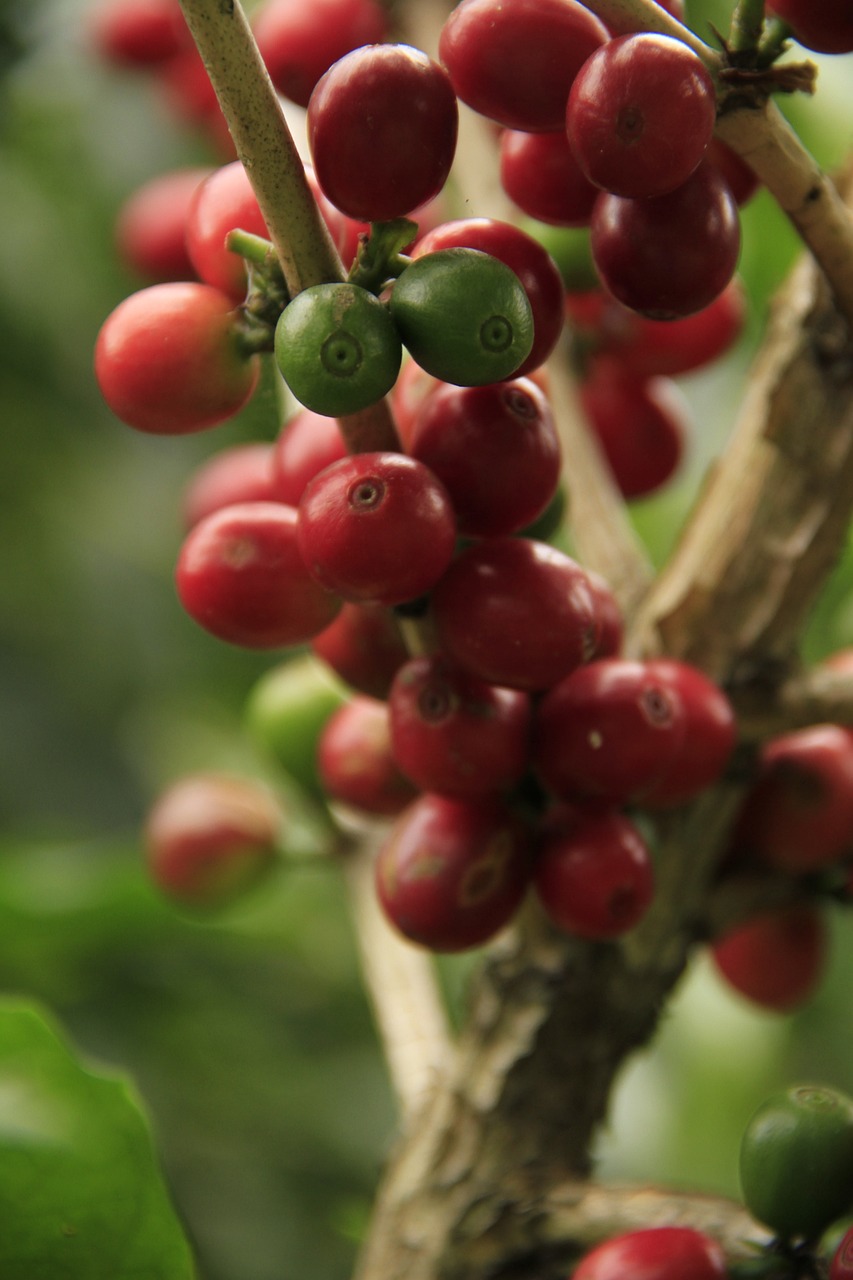The Ultimate Wellness Beverage: Chaga and Lion’s Mane Mushroom Coffee
In recent years, the wellness industry has witnessed a remarkable surge in the popularity of mushroom coffee, combining traditional coffee with medicinal mushrooms. This trend is not merely a fad; it reflects a growing consumer interest in holistic health and natural remedies. As people become increasingly aware of the potential downsides of excessive caffeine consumption, many are turning to alternatives that promise a boost in energy and many health benefits.
Mushroom coffee, particularly varieties infused with Chaga and Lion’s Mane mushrooms, has emerged as a frontrunner in this category, appealing to health-conscious individuals seeking to enhance their daily routines. The appeal of mushroom coffee lies in its unique blend of flavours and health-promoting properties. Unlike conventional coffee, which can lead to jitters and crashes, mushroom coffee offers a more balanced energy boost.
Incorporating adaptogenic mushrooms like Chaga and Lion’s Mane provides additional benefits beyond mere stimulation. These mushrooms have been used for centuries in traditional medicine, particularly in Asian cultures, where they are revered for their therapeutic properties. As consumers become more educated about the potential health benefits of these fungi, the demand for mushroom coffee continues to grow, leading to an influx of products on the market that cater to this new wave of wellness enthusiasts.
Key Takeaways
- Mushroom coffee is gaining popularity as a wellness beverage due to its health benefits and unique flavour profile.
- Chaga and Lion’s Mane mushrooms are known for their potential health benefits, including immune system support and cognitive function enhancement.
- Chaga and Lion’s Mane mushrooms have been shown to enhance cognitive function, including memory, focus, and mental clarity.
- Chaga and Lion’s Mane mushrooms are believed to boost the immune system and support overall health and well-being.
- Chaga and Lion’s Mane mushroom coffee offers antioxidant properties that may help protect the body from oxidative stress and free radical damage.
The Health Benefits of Chaga and Lion’s Mane Mushrooms
Chaga (Inonotus obliquus) and Lion’s Mane (Hericium erinaceus) are two of the most celebrated medicinal mushrooms, each boasting unique health benefits. Chaga, often called the “king of mushrooms,” is primarily known for its potent antioxidant properties. It grows on birch trees in cold climates and has been used in traditional medicine for centuries.
Rich in beta-glucans, polysaccharides, and other bioactive compounds, Chaga supports overall health by reducing inflammation and promoting cellular repair. Its high antioxidant content helps combat oxidative stress, which is linked to various chronic diseases, including cancer and heart disease. On the other hand, Lion’s Mane is renowned for its neuroprotective properties.
This distinctive mushroom resembles a white pom-pom and is often associated with cognitive enhancement. Research suggests that Lion’s Mane may stimulate the production of nerve growth factor (NGF), a protein essential for the growth and maintenance of neurons. This makes it particularly appealing for those looking to improve memory, focus, and overall cognitive function.
Lion’s Mane has also been shown to possess anti-inflammatory and immune-boosting properties, making it a versatile addition to any wellness regimen.
How Chaga and Lion’s Mane Mushrooms Can Enhance Cognitive Function
The cognitive-enhancing effects of Lion’s Mane mushroom have garnered significant attention from researchers and health enthusiasts alike. Studies have indicated that regular consumption of Lion’s Mane may lead to improved memory and concentration. One notable study published in the journal “Phytotherapy Research” found that participants who consumed Lion’s Mane extract significantly improved cognitive function compared to those who received a placebo.
This effect is attributed to the mushroom’s ability to stimulate NGF production, which plays a crucial role in the growth and survival of neurons. Chaga also contributes to cognitive health, albeit through different mechanisms. While it may not directly enhance cognitive function like Lion’s Mane, its anti-inflammatory properties can help create an optimal environment for brain health.
Chronic inflammation negatively impacts cognitive abilities and is associated with neurodegenerative diseases such as Alzheimer’s. By reducing inflammation throughout the body, Chaga may indirectly support cognitive function and overall brain health. These two mushrooms harmoniously combine to boost mental clarity and focus while offering protective benefits against cognitive decline.
The Role of Chaga and Lion’s Mane Mushrooms in Boosting Immune System
| Mushroom Type | Immune-Boosting Properties | Research Findings |
|---|---|---|
| Chaga | Rich in antioxidants and beta-glucans | Studies suggest it may enhance the immune response |
| Lion’s Mane | Contains polysaccharides and hericenones | Research indicates the potential for immune modulation |
The immune-boosting properties of Chaga and Lion’s Mane mushrooms are well-documented and significant in their appeal as wellness beverages. Chaga is particularly noted for its ability to modulate the immune system. It contains beta-glucans that can enhance the activity of immune cells, such as macrophages and natural killer cells, which are essential for fighting off infections and diseases.
By promoting a balanced immune response, Chaga helps the body defend itself against pathogens while reducing the risk of autoimmune reactions. Lion’s Mane also contributes to immune health through its anti-inflammatory effects. Chronic inflammation can weaken the immune system over time, making the body more susceptible to illness.
By reducing inflammation, Lion’s Mane helps maintain a robust immune response. Additionally, some studies suggest that Lion’s Mane may possess antimicrobial properties, further supporting its role in immune defence. Combined with mushroom coffee, these two mushrooms provide a comprehensive approach to bolstering the immune system, making them ideal choices for enhancing their overall health.
The Antioxidant Properties of Chaga and Lion’s Mane Mushroom Coffee
Antioxidants protect the body from oxidative stress caused by free radicals—unstable molecules that can damage cells and contribute to aging and various diseases. Both Chaga and Lion’s Mane mushrooms are rich in antioxidants, making mushroom coffee an excellent source of these protective compounds. Chaga is particularly renowned for its high levels of superoxide dismutase (SOD), an enzyme that helps neutralize free radicals.
This potent antioxidant activity can help reduce inflammation and lower the risk of chronic diseases. Lion’s Mane also contributes to mushroom coffee’s antioxidant profile through its unique compounds, such as hericenones and erinacines. These compounds support cognitive function and exhibit antioxidant properties that can protect brain cells from oxidative damage.
Combining these two mushrooms in coffee form allows consumers to enjoy a delicious beverage with an energy boost and significant antioxidant benefits. This makes mushroom coffee appealing for those seeking to improve their health while enjoying their daily caffeine fix.
How to Incorporate Chaga and Lion’s Mane Mushroom Coffee into Your Daily Routine
Incorporating Chaga and Lion’s Mane mushroom coffee into your daily routine can be simple and enjoyable. Many brands offer pre-packaged mushroom coffee blends that combine instant coffee with powdered extracts of these mushrooms, making preparation quick and convenient. For those who prefer a more hands-on approach, you can create your blend by adding powdered Chaga or Lion’s Mane extract to your regular coffee or brewing them separately as herbal teas.
To maximize the benefits of mushroom coffee, consider starting your day with it instead of traditional coffee. This allows you to enjoy sustained energy without the jitters often associated with caffeine overload. Additionally, you can experiment with different recipes by adding ingredients like almond milk, coconut oil, or spices such as cinnamon or turmeric for added flavour and health benefits.
Some people even use mushroom coffee as a base for smoothies or protein shakes, further enhancing their nutritional profile.
Potential Side Effects and Precautions of Consuming Chaga and Lion’s Mane Mushroom Coffee
While Chaga and Lion’s Mane mushrooms are generally considered safe for most people when consumed in moderation, there are some potential side effects and precautions to keep in mind. Due to its possible effects on blood sugar levels and clotting factors, Chaga may interact with certain medications, particularly those related to blood sugar regulation or anticoagulants. Individuals taking such medications should consult a healthcare professional before incorporating Chaga into their diet.
Lion’s Mane is also well-tolerated by most individuals; however, some people may experience mild digestive upset or allergic reactions. Those with known mushroom allergies or specific sensitivities should start with small doses to assess tolerance before increasing consumption. Pregnant or breastfeeding women should also exercise caution and consult their healthcare provider before adding mushroom coffee to their routine.
Where to Find High-Quality Chaga and Lion’s Mane Mushroom Coffee Products
As mushroom coffee’s popularity grows, many brands now offer premium products enriched with Chaga and Lion’s Mane mushrooms. When selecting these products, it is crucial to choose reputable brands committed to quality sourcing and manufacturing. Opt for products made with organic mushrooms cultivated in their natural habitats, free from harmful pesticides and additives.
Online retailers such as Amazon or specialty health food stores often carry a variety of mushroom coffee blends from well-known brands like Four Sigmatic, RISE Brewing Co., or Laird Superfood. Additionally, local health food stores or co-ops may offer fresh options from local producers focusing on sustainable practices. Always check product labels for transparency regarding sourcing, extraction methods, and ingredient lists to ensure you get the best quality mushroom coffee available today.





